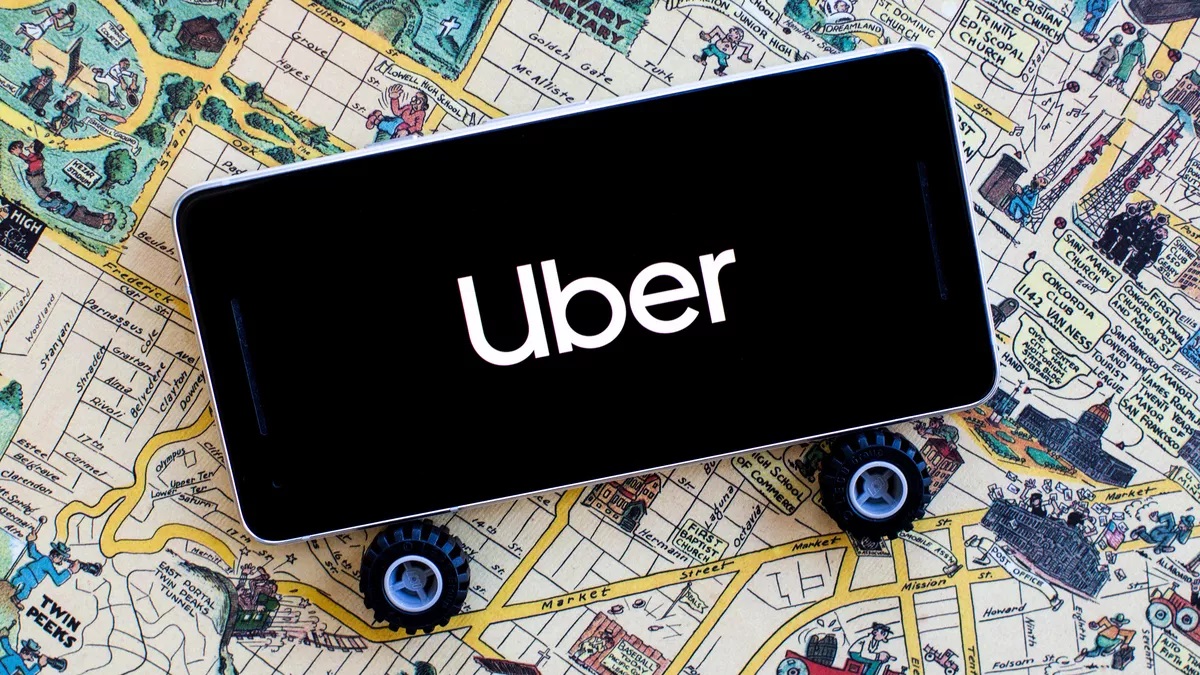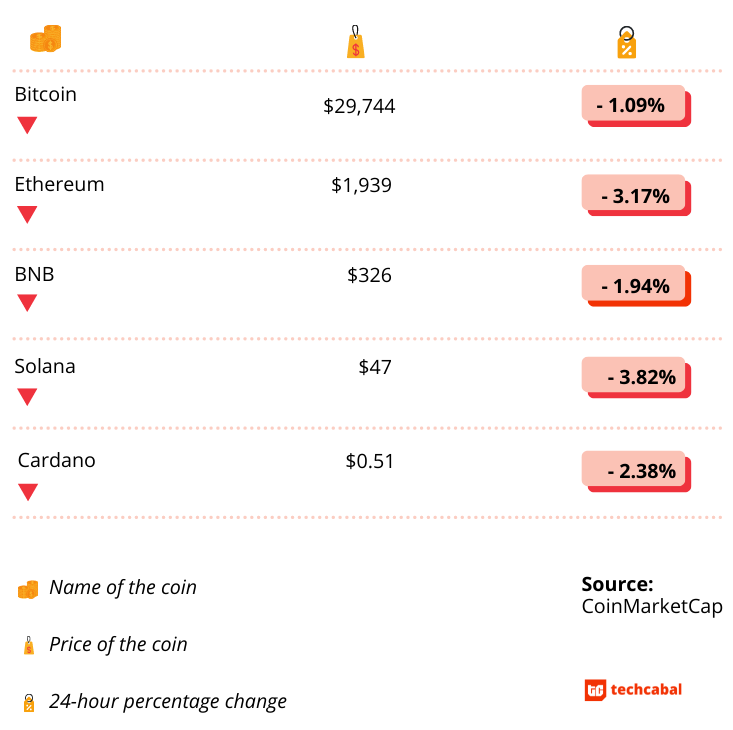
IN PARTNERSHIP WITH

Happy post-salary day 😭
And like clockwork, all my subscriptions from YouTube Music and Netflix, to life pro and adulting, are crying for attention.
I’ve been using a spreadsheet to keep track of my finances, but that’s too manual for me. I’m now trying out a few apps, and I’ll share my results with you in a month.
What apps do you keep track of your expenses with? And if were to use an app to track your finances and spends, what kind of features would you need?
What should I track in my tests?
In today’s edition
- Uber has recorded 1 billion rides in Africa
- Nigeria is launching an IP marketplace
- CAR wants to create a crypto-economic zone
- Can proptech solve Nigeria’s urbanisation crisis?
- Opportunities
UBER RECORDS 1 BILLION RIDES IN AFRICA

It’s true what they say: once you ride African, you become a lifelong fan.
Uber announced that it has completed 1 billion rides and equally covered over 10 billion kilometres in distance across all its markets in Africa. Since the mobility tech company settled on the continent in South Africa, it has established itself in 7 other African countries: Nigeria, Ghana, Egypt, Kenya, Tanzania, Uganda, and Ivory Coast.
How it all started
Six years ago, Uber launched its food delivery arm in South Africa with just 1,000 restaurants. It has expanded across Nairobi, Kenya, and a few South African cities and serves over 8,000 restaurants.
The company says that Uber and Uber Eats have collectively reached over 30 million riders and eaters in sub-Saharan Africa— 1500% more than they reached in 2017.
How it’s going
While disrupting local cab industries, Uber created over 50,000 driver jobs. However, due to stiff competition from Bolt, Uber has made price slices that sparked conflicts with its employees.
In 2016, the company sliced commuters’ fares by almost 50% in Kenya in response to competition with Bolt. That sparked a civil suit filed against the company and Uber BV from its drivers, which is still ongoing.
Experiencing opportunities as well as friction, the mobile technology company continues to hit significant milestones such as its billionth ride.
Don’t just send money, send money fast. Send and receive money directly to mobile wallets, bank accounts, Barter or through cash pickup with $end.
Visit send.flutterwave.com and do it now!
This is partner content.
NIGERIA IS LAUNCHING AN IP MARKETPLACE

You’ve heard of e-commerce websites and NFT platforms, but have you heard of websites where you can sell your intellectual property rights?
Well, that’s what the Nigerian government plans to create.
In news from iAfrikan, the Nigerian government has signed a 3-year intellectual property rights (IPR) deal to create a marketplace where Nigerians can sell their IP rights and receive royalties.
Break this down for me
Intellectual property is divided into copyright, patents, trademarks, and industrial designs. Simply put, they’re the exclusive rights creators have over their works. The rights to sell their work or permit others to use their works.
Just like you have the freedom of movement or the freedom to post freely on social media, creators—like photographers, writers, painters, designers, and even scientists—also have the right to sell or rent out whatever unique things they create, subject to a few conditions.
So what’s Nigeria doing?
Well, the Nigerian government has signed a deal with Developing Africa Group (DAG), a UK-based IPR commercialisation group to create a marketplace where Nigerians can sell all these registered rights and receive proceeds in their wallets.
The platform will be built on the Algorand Blockchain which, according to DAG CEO Ben Oguntala, “provides the performance, scalability, security, and functionality required to implement such a large-scale project but is also environment-friendly”.
DAG has also selected Koibanx, an Argentina-based software company, as the tokenisation and payments engine for the platform.
What this means for everyday Nigerians
For Nigeria’s growing creator economy, this means more visibility and income.
A platform like this would allow everyone, from content creators and musicians to photographers and actors, sell their intellectual properties. Celebrities like Osita Iheme could sell rights to soundbites, photographers like Fati Abubakar could list rights to their photos, and even tech bros can sell rights to unique processes or designs (including logos) that are registered under Nigeria’s patent law. The Nigerian film industry—Nollywood—could also raise funds by selling some of its features.
Forget NFTs, it’s time to start registering all your designs and logos!
Payment collection just got easier on Fincra!
Receive payments from your customers via debit/credit cards or bank transfers and settle these payments to your Fincra wallet or your bank account.
Create an account in less than 2 mins and Try the Fincra checkout here.
This is partner content.
CAR WANTS TO CREATE A CRYPTO ECONOMIC ZONE

Last month, the Central African Republic (CAR) adopted bitcoin as a legal tender. Now, it announced its plan to create a “crypto economic zone”. This zone will enable people to transact using bitcoin and other cryptocurrencies, tax-free. The initiative is tagged “Project Sango” and aims to encourage crypto professionals and enthusiasts to work and live in the country.
The dream
The nation nurses an ambition to become the first African country to create a dedicated legal framework for cryptocurrencies before the end of 2022. The proposed legal framework will entail the creation of a Digital National Bank. It will also focus on a tokenisation framework, e-residency programmes, citizenship by investment, online business registration, zero income and corporate tax, digital identity and ownership, and crowdfunding.
The CAR also said Project Sango will facilitate land acquisition in bitcoin for investors and enable access to the country’s natural resources.
CAR has its work cut out for it
No announcement has been made on when the investment hub will open or how it will operate, but the CAR has been receiving warnings and criticism from international bodies like the International Monetary Fund (IMF).
The IMF is concerned by the adoption of bitcoin as legal tender in the CAR and says it poses several issues for the country and the region.
The reservations are quite understandable, especially as this announcement comes at a period of increased volatility of cryptocurrencies—bitcoin plunged to its lowest level since July last year.
The Central African Republic has work to do to make the dream work. If, for example, it focuses on the expansion of its broadband internet connections, it would be one step closer to its goal.
Europe’s biggest start-up and tech event is back! Viva Technology brings together start-ups, CEOs, investors, global tech actors, and well-pronounced speakers. It will take place on June 15-18, in Paris.
This is partner content.
CAN PROPTECH SOLVE NIGERIA’S URBANISATION CRISIS?

Nigeria is growing at the rate of 2.5% per annum. The UN estimates that Nigeria’s 200 million population will double by 2050.
Of its growing number, over 22 million are in need of housing, but the country is only producing 250,000 houses per year.
While Nigeria has the land mass to accommodate its people, it faces rapid urbanisation with 51.96% of its population situated in densely-populated urban areas while the rest are scattered across rural communities. At the current growth rate of about 2.8%–3% a year, Nigeria’s urban population is expected to double in the next 2 decades.
With this rapid urbanisation, the country faces a myriad of housing problems from lack of affordable housing and high agency inspection fees, to duplicity of sales and misrepresentation. In fact, rent across urban areas like Lagos and its environs increased by 30%.
Can tech mitigate these problems? With Nigeria’s proptech industry raising $2 million in investments in 2021 alone, TechCabal sought to answer these questions in a Live session. On May 6, 3 startup founders—Naomi Olaghere, co-founder and VP/Operations, RentSmallSmall; Kanyinsade Ademuson, founder, CEO and Principal Architect of Seventh Space; and Dapo Eludire, COO of PropertyPro.ng—sat with TechCabal Senior Reporter Daniel Adeyemi to discuss the prospects of proptech in Nigeria.
Here are some solutions the founders proffered:
- Naomi Olaghere believes that Nigeria should turn to monthly or quarterly rent payment options instead of annual or bi-annual payments.
- For architect Kanyinsade Ademuson, the answer lies in developing and designing for the customers. “Stop developing houses that your target market can’t afford,” he says.
- Ademuson also believes that Nigeria needs to produce quickly, and in large quantities.
- Dapo Eludire calls for the need for centralised data that houses market and user trends. The founder also emphasises the need for trust, and collaboration across sectors and players.
- Finally, Eludire highlights the need to enforce licensing of trained real estate agents to help curtail wayward activities.
OPPORTUNITIES
- The Pavestones Women Empowerment Programme (PAWEP) is now open to applications from Nigerian women who own tech businesses. Ten selected participants will receive tailored legal services for their tech businesses and legal consultation. Check it out.
- The Growth Handbook by Olabinjo Adeniran is a curation of growth, sales, product, design and marketing lessons from over 20 experienced operators working at the most impactful fintech startups in Nigeria. Preorder and learn how to scale your startup.
- African startups can now apply forthe K-Startup Grand Challenge. The accelerator programme provides regulatory support as well as industry linkages to establish a presence in South Korea and expand to other Asian countries. The top 10 teams will get grants worth $320,000 and the top 39 startups will get assistance to expand business in Korea. Apply here.
- Applications are open for the 2022 edition of the African Business Heroes Competition for African Entrepreneurs. Entrepreneurs from all 54 African countries who are contributing to the development of sustainable economies are invited to apply. Ten winning entrepreneurs will share $1.5 million, get access to mentorship opportunities, and gain global recognition. Shoot your shot.
What else we’re reading
- Fueled by a $10.3 million pre-seed round, Untapped Global launches digital investment platform.
- How strategic partnerships helped Kay Akinwunmi build Zazuu.
- Google Translate’s latest update increases the popularity of Africa’s languages.
- Canza Finance is a neobank enabling decentralised cross-border payments for Africans.





























